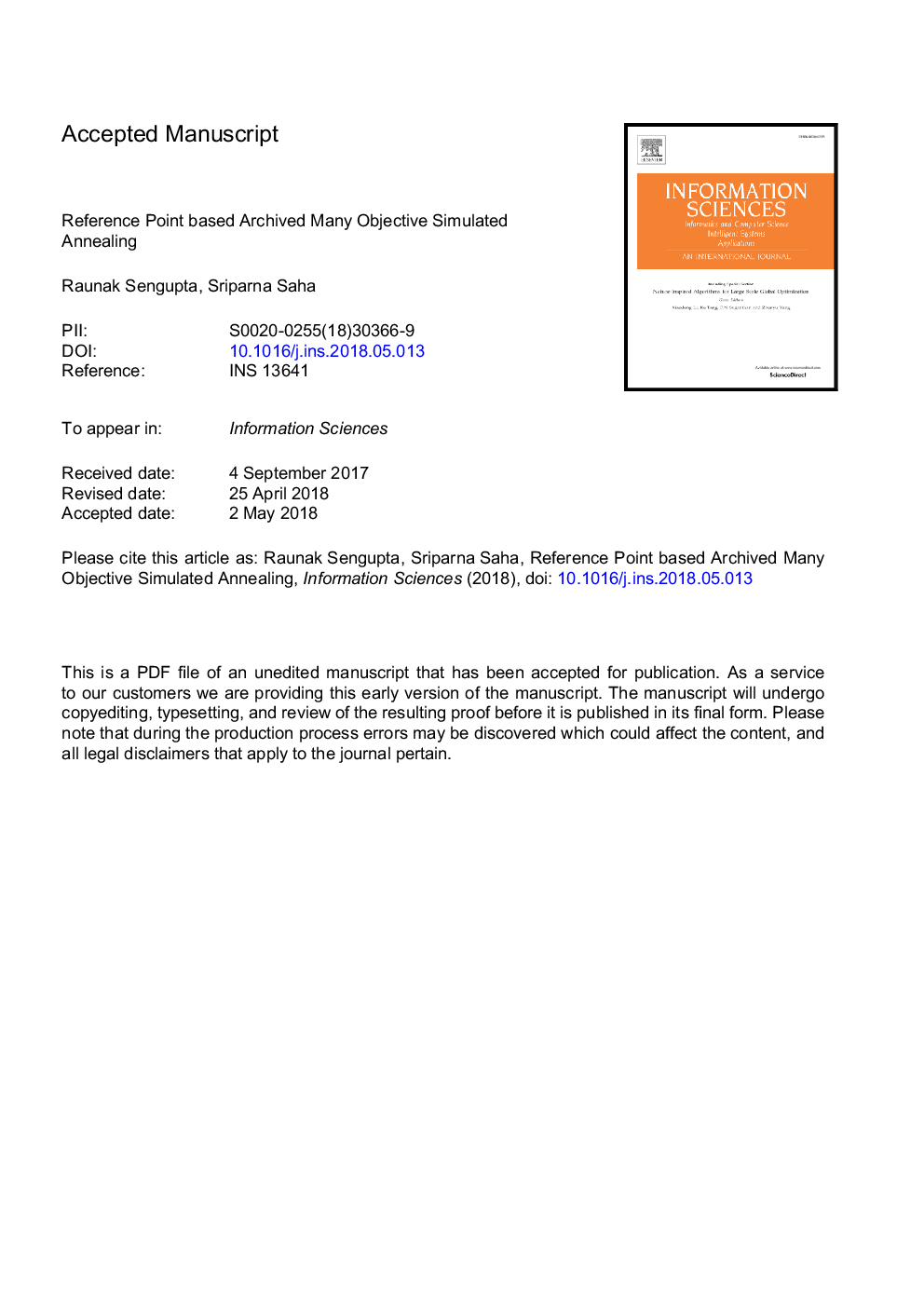| Article ID | Journal | Published Year | Pages | File Type |
|---|---|---|---|---|
| 11002346 | Information Sciences | 2018 | 35 Pages |
Abstract
Recent research in optimization theory focuses on developing algorithms for the many objective optimization problems. These problems require careful attention to efficiently handle the increasing number of objectives and also to address the various challenges associated with these types of problems. The present study introduces a new unconstrained many-objective optimization algorithm called reference point based many objective simulated annealing algorithm (RSA). The algorithm is an amalgamation of several new modules including a reference point based clustering technique to control the size of the archive which stores the solutions, a novel mutation strategy termed as mutation-switching and a new acceptance probability function. Unlike the existing simulated annealing based multiobjective optimization techniques, the current work explores the use of archive-to-archive transition rather than point-to-point transition. The performance of RSA is validated and compared with many other state-of-the-art algorithms on a number of unconstrained benchmark problems of DTLZ and WFG test suites with up to 15 objectives. The experimental results show that RSA outperforms AMOSA, NSGA-III, MOEA/D-PBI and θ-DEA in terms of two well-known performance metrics, namely inverse generational distance (IGD) and hyper-volume (HV), for a majority of the test cases considered . It has also been shown that RSA usually requires fewer number of function evaluations compared to other algorithms for equal or better performance and might thus be more useful for MaOO problems which are expensive in terms of computational time. To illustrate some real-life applications of RSA, in a part of the paper, we have developed a multiobjective clustering technique utilizing RSA as the underlying optimization mechanism which is then used for segmenting satellite images.Obtained results prove the efficacy of RSA in solving the segmentation task.
Related Topics
Physical Sciences and Engineering
Computer Science
Artificial Intelligence
Authors
Raunak Sengupta, Sriparna Saha,
